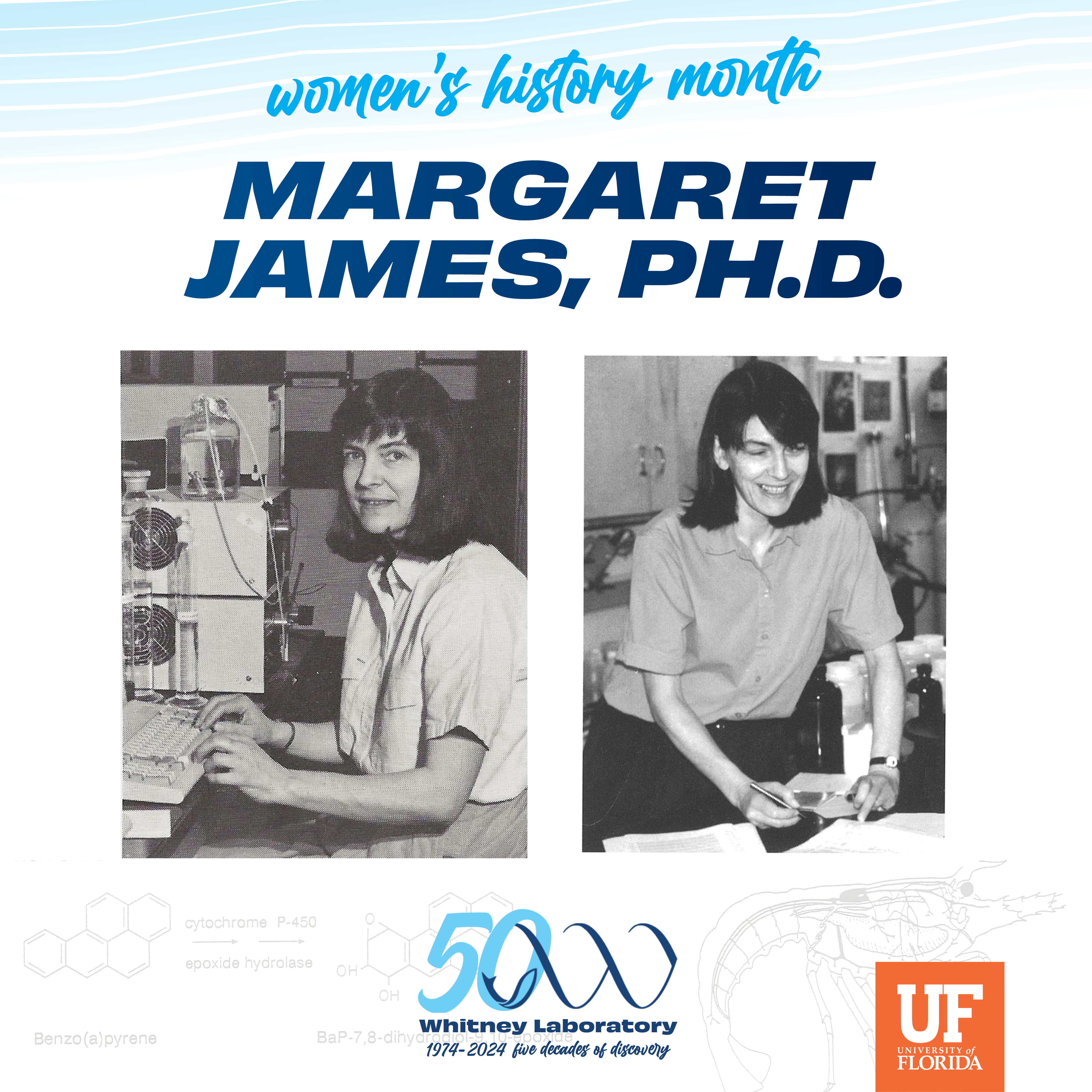 The Whitney Laboratory for Marine Bioscience
The Whitney Laboratory for Marine Bioscience

Whitney Laboratory celebrates Women's History Month - Join us throughout March as we celebrate women who have helped shape the Whitney Laboratory to what it is today!
C. V. Whitney Marine Research Laboratory
Dr. Margaret James received her Ph.D in Organic Chemistry just 10 years after Rachel Carson’s Silent Spring had swept across the United States and inspired a national investigation into how human activities disrupt the environment. In 1975, she was ready to set up her own research space at the new C. V. Whitney Marine Research Laboratory to study how pollutants are taken up by marine organisms and determine whether they could affect people eating seafood.
As one of the lab’s first female faculty members, Dr. James helped expand its range of research. Her work, funded by the National Institute of Environmental Health Sciences and National Institute of Health, showed that locally sourced marine animals — from flounder to sheepshead to spiny lobster — process pollutants much slower than land animals. This was surprising at the time because scientists previously thought fish couldn’t metabolize pollutants, at all. It turns out the parameters of those early experiments destroyed the fish enzymes, skewing the data. Dr. James helped set the record straight.
In 1980, Dr. James was hired as an Assistant Professor at the University of Florida College of Pharmacy. But over the next 20 years she continued using her lab space at the Whitney Lab and looked forward to those long weekends and that scenic drive down the A1A.
“The lab was a small group of people, and everybody was very friendly and cooperative,” she remembers fondly, recalling all the “very different” areas of expertise. “The collegiality is what I remember as the greatest thing.”
Dr. Margaret James would later become the Department Chair of Medicinal Chemistry at UF. She retired as an emeritus professor in 2023, leaving behind a long-lasting legacy.